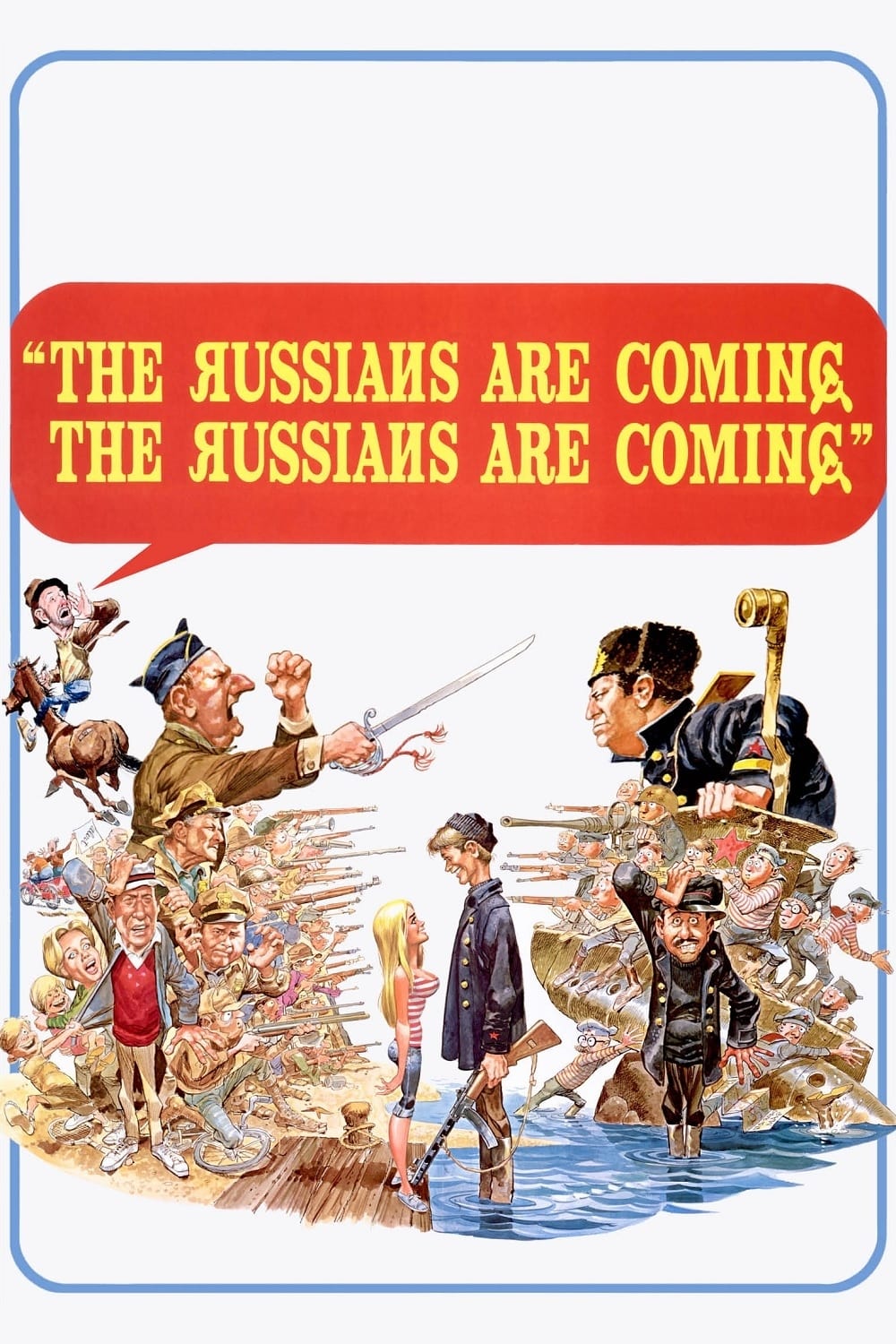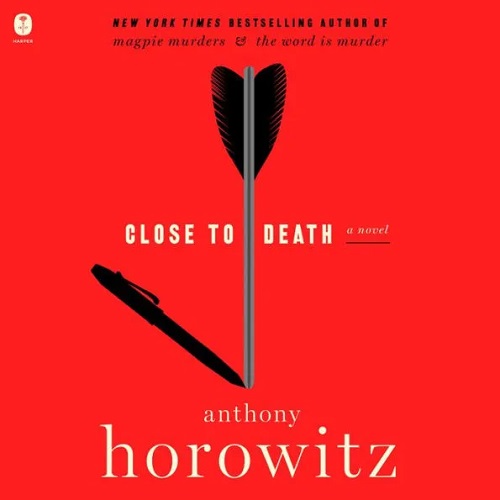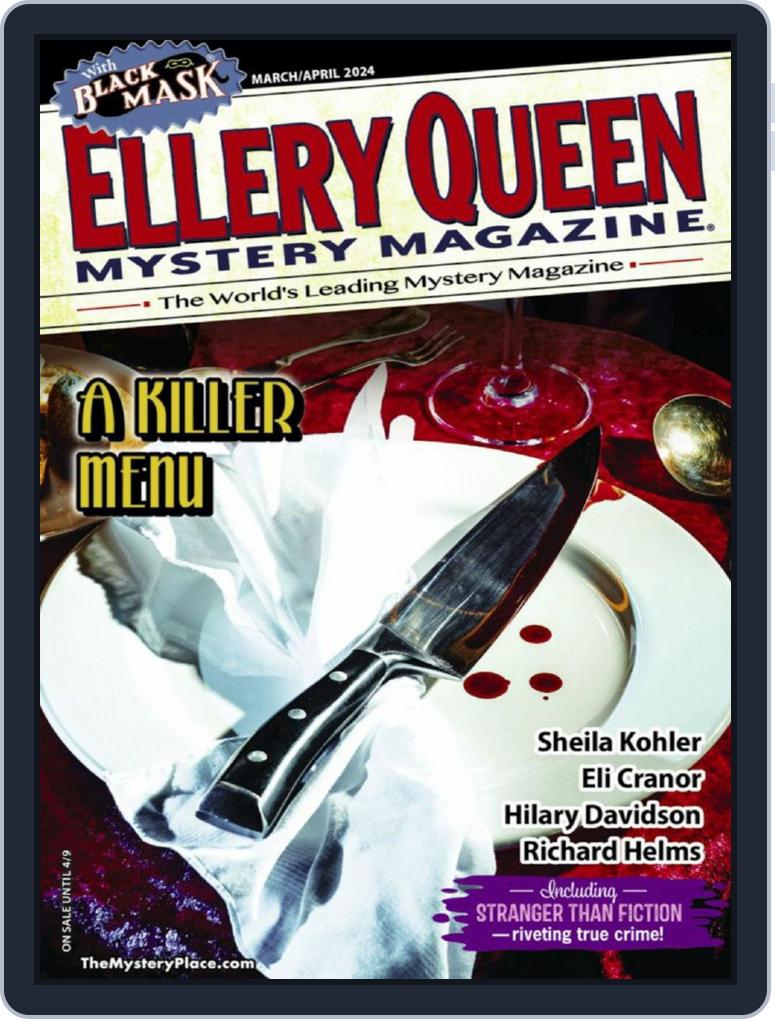This is my sixteenth review of the best short mysteries of the year. I am sure the judges of Edgars, Derringers, etc. can relax since they can simply look here for all the greats (well, except for these and those.) If you mention this list, and I hope you do, please refer to it as something like "Robert Lopresti's best short mysteries of the year list at SleuthSayers," NOT as the "SleuthSayers' best of..." because my fellow bloggers are ruggedly independent and may well have opinions of my own.
There are 14 winners this year, down two from 2023. Ten are by men, 4 by women. The big winner is Alfred Hitchcock's Mystery Magazine, with three stories. Ellery Queen's Mystery Magazine, Down and Out Books, and White City Press each scored 2. One author has two stories in my list, which has only happened three times before. Five stories are by my fellow SleuthSayers.
Okay. Let's get down in the dirt.
Binney, Robert J. "Restoration Software," in The Killing Rain, edited by Jim Thomsen, Down and Out Books, 2024.
This is the story of a Seattle private eye, not exactly a native to the city, but one who has been kicking (ahem) around the northwest for a long time. "He might be an eight-foot-tall mythological savage covered in mottled, tangled fur, but he was no dummy." Yup. Sasquatch, P.I.
Chase, Joslyn. "Mall Cop Christmas Parade," in Alfred Hitchcock's Mystery Magazine, January/February 2024.
'Tis the merry season in California and Bradford Hines has a ticket to get back to his family in Maryland. But he's in a busy mall and before he can grab that plane he wants to grab a wallet out of a man's jacket. That part's easy, but Brad is not as smooth a pickpocket as he thinks and a female security guard catches him in the act. Or is that what happens?
Cody, Liza, "Don't Push Me," in Ellery Queen Mystery Magazine, July/August 2024.
This is Cody' fourth appearance in my best of the year list. Debby "Basher" Belker is a
squaddy - a British soldier. She has seen a lot of combat overseas but
this story takes place in England and the trouble starts when she sees a
man beating a small boy. True to her reputation, she hits first and asks questions
after. Turns out the boy is a thief, but the man is selling
counterfeit goods. The police have no interest in prosecuting him but
Belker takes advantage of a possibility that does not exist in the
United States: She organizes a private prosecution. The crook's bosses object...
D'Agnese, Joseph S. "When Lilacs Last in the Dooryard Bled," in Murder, Neat: A SleuthSayers Anthology, edited by Michael Bracken and Barb Goffman, Level Short, 2024.
I have a story in this book. Joe is a fellow SleuthSayer.
 It's Greenwich Village in 1859 and eccentric people flock to Pfaff's a German-owned tavern. When a theatre critic is murdered there poet and regular Walt Whitman decides to solve the crime before the police find out what goes on there and shuts the joint down.
It's Greenwich Village in 1859 and eccentric people flock to Pfaff's a German-owned tavern. When a theatre critic is murdered there poet and regular Walt Whitman decides to solve the crime before the police find out what goes on there and shuts the joint down.
Floyd, John M. "Hole in my Soul," in Janie's Got a Gun: Crime Fiction Inspired by the Music of Aerosmith, edited by Michael Bracken, White City Press, 2024.
Hard to believe this is SleuthSayer Floyd's first mention on this list.
The narrator saves a child from dying in a horrible accident. Then he walks off down the street with something on his mind. The fun part is finding out what.
 Hannah, James D.F. "Do You See the Light?" in Lost and Loaded: A Gun's Tale, edited by Colin Conway, Original Ink Press, 2024.
Hannah, James D.F. "Do You See the Light?" in Lost and Loaded: A Gun's Tale, edited by Colin Conway, Original Ink Press, 2024.I have a story in this book.
John
owns a record shop, selling vintage discs to fanatical collectors. His
friend Danny makes his living as a clown at children's parties, which
doesn't really match his personality: "You oughta be able hunt
five-year-olds for sport." They suspect a very valuable album (five figures!) might be in a wealthy home
in town, and decide to try a short career as burglars. It doesn't go
well.
Mallory, Michael. "Who Wants to Kill Someone?" , in Alfred Hitchcock's Mystery Magazine, January/February 2024.
 Michael is our newest SleuthSayer. and this is his second hit on my list.
Michael is our newest SleuthSayer. and this is his second hit on my list.
Bruce signs up for a hit TV show called Who Wants to Kill Someone? The cast is flown to a Central American country and one member is assigned the role of murderer and is then actually expected to kill a fellow performer. Bruce is given the role of murderer and learns that not everyone is who they appear to be and the actual plot of the show is different than it seems - but no less dangerous.
 O'Connor, Paul Ryan. "No One Will Believe You," in Mystery Magazine, March 2024.
O'Connor, Paul Ryan. "No One Will Believe You," in Mystery Magazine, March 2024.
Ayden is a dishwasher at a restaurant in the South Bronx, sharing an apartment with four people ( he gets the couch). His troubles really begin when he gets mugged at gun point by the most famous actor in the world,
“You can’t get away with this,” Ayden said . “You’re a movie star . I know who you are . Everyone knows who you are .”
“No one will believe you,” Ted Pace said...
Pochoda, Ivy. "Johnny Christmas," in Eight Very Bad Nights: A Collection of Hanukkah Noir, edited by Tod Goldberg, Soho Crime, 2024.The
narrator, Davo, recently got out of the army and decides to get a
tattoo. He gets linked up to an artist named Johnny Christmas and
immediately recognizes him as Mike Goldfarb, who he had known many years
before at the Brooklyn House of Detention. Goldfarb was awaiting trial
for running over his grandmother's landlord. Twice. A nice character study.
 Rusch, Kristine Kathryn, "The Bride Case," in Alfred Hitchcock's Mystery Magazine, September/October 2024.
Rusch, Kristine Kathryn, "The Bride Case," in Alfred Hitchcock's Mystery Magazine, September/October 2024.
This is Rusch's fourth appearance on the list. The narrator is an attorney, on his way to an important homicide case, but he looks in on a colleague trying her first divorce case. Something goes wrong, life-changingly wrong, and the story shifts. Later it changes again and we get to what the story is really about, as the narrator has to really think about his relationship with the law.
Troy, Mark, "The Car Hank Died In," in Tales of Music, Murder, and Mayhem: Bouchercon Anthology 2024, edited by Heather Graham, Down and Out Books, 2024.Two horny teenagers decide the perfect place to fool around is the backseat of an old
Cadillac. Couple of problems with that: 1. The driver is about to take
it out for gas. 2. This isn't just any old Caddy; it's the one where
Hank Williams took his last breath and is used in parades on holidays,
such as the next day. Next problem: a cowboy with a gun and bad intentions.
Walker, Joseph S. "Come On Eileen," in (I Just) Died in Your Arms, edited by J. Alan Hartman, White City Press, 2024.
Fouth story on this list by my fellow SleuthSayer, Liam
Walsh grew up in a neighborhood called Little Dublin, ruled over by
Patrick Flynn. His father worked for Flynn, and Liam adored Flynn's
daughter, Eileen. At an off-to-college party for Eileen,
Flynn shot Liam's parents, killing his mother and crippling his father. Years later Liam finds out what really happened...
Walker, Joseph S. "And Now, an Inspiring Story of Tragedy Overcome," in Three Strikes -- You're Dead!, edited by Donna Andrews, Barb Goffman, and Marcia Talley, Wildside Press, 2024.
And here is greedy Joe back with a fifth story. That ties him with David Dean for the most ever (so far).
Lonnie
Walsh is a second generation mobster. His sister dies giving birth to
the daughter of Brant, her worthless husband. Lonnie has
to watch over little Kayla while trying to keep idiot Brant out of
trouble. Things get more complicated when Kayla has the potential to
be a world-class figure skater, if her family's reputation doesn't interfere.
Wiebe, Sam, "The Barguzin Sable," in Ellery Queen Mystery Magazine, March/April, 2024.David
Wakeland is a Vancouver P.I. At his mother's request he investigates
the home invasion of a neighbor that included her murder and the theft
of her precious fur coat, a relic that came over from Russia a century
before. It turns out that the sable means many things to
different people. As one character says "You can't expect common sense
from folks who wear weasel."
By the way, in the last month several SleuthSayers have presentied in this space a review of their year's work. I actually put mine up on a different site. Feel free to take a peek.















.jpg)































